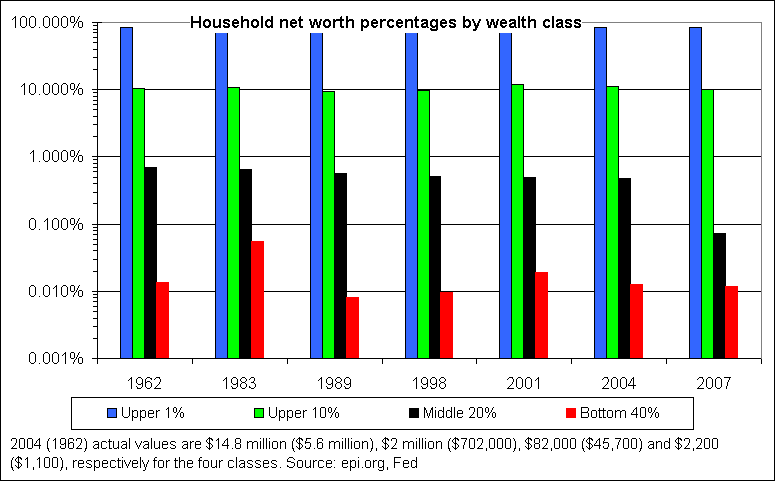Re: record inequality
Rich have always been richer, and in aggregate gain wealth faster than the poor because they play a disproportionate role in creating the wealth. If you want to follow "wealth equality" to its logical conclusion, you can't get more equal than everyone having zero wealth. The rich will continue to be getting richer just as long as wealth remains creatable and transferable.
Wealth redistribution schemes have created some interesting side effects, including the re-introduction of "producing children" as a marketable skill for women. Artificially inflated prices for labor have proven disastrously unsustainable by the more extreme cases, at least unsustainable without a helping hand from the people at large. By people at large, I mean tax payers.
If a rich person is getting rich "legitimately" then it is not a bad thing. The problem, as so often noted, is the excessive corruption, theft, and so forth that occurs. Much of this, however, is a reason to further reduce the role of government in all economic matters, as so much of the efforts of the government go towards protecting the rich in all forms: FIRE, welfare state benefactors, warfare state benefactors, etc.
Rich have always been richer, and in aggregate gain wealth faster than the poor because they play a disproportionate role in creating the wealth. If you want to follow "wealth equality" to its logical conclusion, you can't get more equal than everyone having zero wealth. The rich will continue to be getting richer just as long as wealth remains creatable and transferable.
Wealth redistribution schemes have created some interesting side effects, including the re-introduction of "producing children" as a marketable skill for women. Artificially inflated prices for labor have proven disastrously unsustainable by the more extreme cases, at least unsustainable without a helping hand from the people at large. By people at large, I mean tax payers.
If a rich person is getting rich "legitimately" then it is not a bad thing. The problem, as so often noted, is the excessive corruption, theft, and so forth that occurs. Much of this, however, is a reason to further reduce the role of government in all economic matters, as so much of the efforts of the government go towards protecting the rich in all forms: FIRE, welfare state benefactors, warfare state benefactors, etc.

Comment